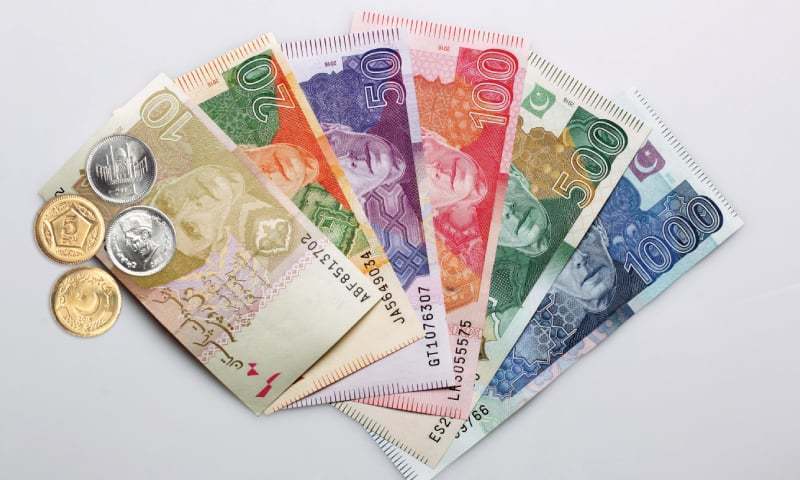ISLAMABAD: The amended finance bill has reduced and abolished several taxes as the government accepted the long-standing demand of various sectors including small enterprises, low-cost housing while charges on banking transactions has been abolished for filers.
The amended finance bill, presented on Wednesday, has removed the Advance Income Tax on cash withdrawal and cash-denominated instruments from banks for filers, while the Federal Board of Revenue (FBR) will issue bonds in lieu of cash for pending refunds of industrialists.
• Promissory notes for sales tax refunds finalised
• Tax reduction on intercorporate dividend for group cos
• Customs duties on total of 75 products removed
• Tax reduction on intercorporate dividend for group cos
• Customs duties on total of 75 products removed
Briefing the media, FBR Member Policy Hamid Atiq said the inflows from this tax were a major source of revenue but the government has decided to facilitate the filers. The revenue loss would be between Rs11-12 billion, while increase in Federal Excise Duty (FED) would generate Rs3-4bn, he claimed.
“The net overall drop in revenue would be Rs6.8bn,” the member planning said, adding however that the government has not reduced the tax collection target of Rs4.39 trillion for the ongoing fiscal year.
He also said the overall collection in the first six month of previous year was 43 per cent of total target compared to 41pc in the current year, adding that the new measures would encourage the tax payers especially the business community.
The FBR has to pay around Rs80bn to business community in terms of refunds which was difficult due to liquidity shortage, he said. Therefore, the new measures will give businesses “promissory notes” that are either encashable at a bank or can be collateralised into a loan.
“The bonds can be encashed in the open market, deposited in the banks as collateral and the FBR will give 10pc interest over them after a three-year period,” Atiq said.
Number of Withholding statements filed by businesses has also been reduced from 12 to 2 in a year.
Incentives have been given to banks for advancing loans to micro and small enterprises, low-cost housing, agricultural finance as the income tax from these loans has been reduced to 20pc from 39pc.
Meanwhile, super tax of 4pc has been abolished from the non-banking sector to be applicable from the next fiscal year.
Advance Tax on cash withdrawal by non-filers in bank accounts where the amount has been forwarded from foreign remittance has been abolished as well.
Tax on inter-corporate dividend in case of companies availing group relief has been reduced while tax on undistributed profits has been gotten rid of to promote reinvestment of profits by the companies. Moreover, Advance Tax on small marriage halls with area up to 500 square yards has been brought down to Rs5,000, from Rs20,000.
Exemption has been granted for five years to industries for establishing plants to manufacture equipment used in generation of renewable energy if set up between Mar 1, 2019 and June 30, 2023.
The advance income tax at the time of auction of franchise rights, from participating teams in national and international sports tournament organised by any Sports Board or entity established by the Government, is also being abolished.
Reductions have been made in custom duties including 5pc duty on the import of news prints for members of All Pakistan Newspapers Society and Council of Pakistan Newspapers Editors.
Custom duty on import of plastic moulding compounds has been reduced from 5pc to 3pc whereas that on industrial inputs, covered under 53 tariff lines is being either removed or brought down. Similarly, Additional Customs Duty on industrial inputs covered under 22 tariff lines is being removed.
Regulatory duty is being eminated on input materials of around 200 tariff lines imported under SRO 655(I)/2006 dated Jun 5, 2006 that are used for manufacturing of auto parts by local vendors.
Regulatory duty on smuggling-prone items like tyres, padlocks, groundnuts, food/chocolate preparations, floor coverings, vacuum flasks –– falling under 24 tariff lines –– has been reduced.
Collection of duty and taxes
on mobile phones is to be rationalised through collection of all duty/taxes on uniform slabs based on C&F values at fixed rates.
The total taxes on mobile phone valued up to Rs10,000 have been brought down from Rs1,025 to Rs400, those costing above Rs28,000, tax has been decreased by Rs338 to Rs4,000.
For sets up to Rs60,000, the tax is Rs6,000 with a reduction of Rs100 and for those valuing up to Rs105,000, new tax will be Rs8,000, recording a decrease of Rs505.
Regulatory duty of 25pc on export of lead, lead products, scrap of lead and 15pc copper scrap is being removed in respect of exports made under DTRE/Manufacturing Bond Schemes.
Amendments have been made in sales tax and federal excise duty, including exemption on plant and machinery to greenfield industries excluding consumer durables and office equipment, to be used for setting up new industry for production of taxable goods.
Exemption on machinery and equipment relating to renewable energy will also continue.
The proposed finance bill has exempted sales tax relating to ostomy procedures for cancer patients, related to appliances and items listed under PCT heading 99.25.
However, the FED on imported luxury cars/SUVs has been increased from 20pc to 25pc on up to 3000cc vehicles and 30pc for those exceeding 3000cc. A 10pc FED is also being levied on local luxury cars/SUVs.

Comments
Post a Comment